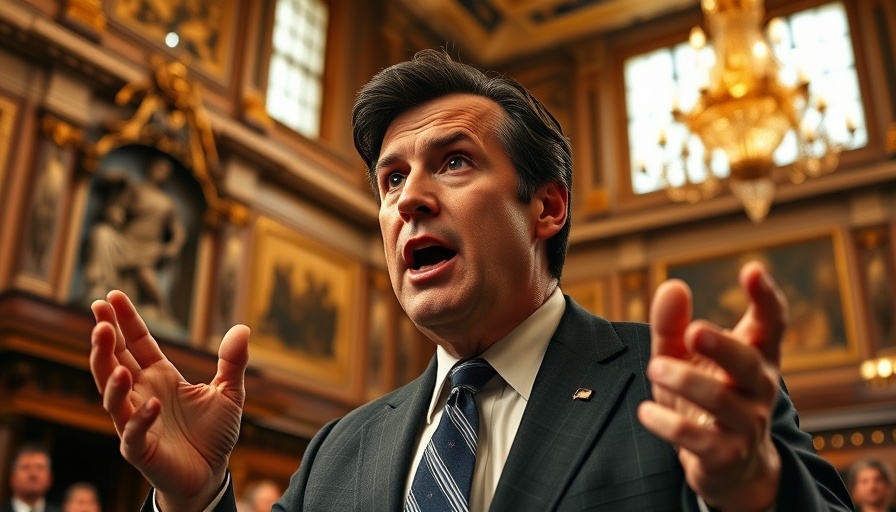
Senator Booker's Unyielding Stand Against Authoritarianism
In a charged moment on the Senate floor, U.S. Senator Cory Booker (D-NJ) delivered a powerful plea for unity among Democrats, accusing certain party members of being "complicit with an authoritarian"—a veiled but clear reference to President Donald Trump. The impassioned exchange comes at a time when the Democratic Party is at a critical juncture, and Booker emphasized that failure to confront the Trump administration could lead to substantial political consequences.
The Context of Booker’s Critique
Booker’s remarks were ignited by a motion from fellow Democrat Senator Catherine Cortez Masto concerning a bill package linked to law enforcement funding. Booker argued for an equitable dispensation of resources across states, urging his colleagues to leverage their position effectively against a backdrop of perceived capitulation to Trump’s agenda. His focus shifted to broader cultural instabilities, lamenting over institutions compromising their values and autonomy in fear of the president’s influence.
Lessons for Democrats: The Wake-Up Call
"This to me is the problem with Democrats in America right now," Booker exclaimed during his fervent address. He argued for actionable reforms, asserting that if the Democratic leadership is genuinely concerned about law enforcement's plight, they must propose and support legislative measures that address the needs across diverse states—ones that genuinely protect their communities instead of catering to Trump's prejudicial favor. His insistence on a unified Democratic front reflects a growing frustration with legislative indecision among party members.
The Role of Institutions in Upholding Democracy
Beyond internal party limitations, Booker expressed deep concern about institutional responses to Trump's leadership. He criticized law firms, universities, and various businesses for what he termed "bending a knee" to an administration that undermines foundational democratic principles. According to Booker, institutions that historically advocate for free speech and civil rights are succumbed to fear, resulting in systemic failures that resonate beyond political parties and affect civil society at large.
Implications for Civil Rights Attorneys and Activists
For civil rights and immigration attorneys, Booker’s call to action serves as a substantial reminder of the ethical obligation practitioners have toward the democratic process. Attorneys at the frontline of immigration reform are encouraged to reflect on their roles and advocacy strategies. This moment invites legal professionals to fortify their involvement not only in the courtroom but also in empowering community voices—challenging unjust laws and fighting for the rights of marginalized populations.
Taking Action: What Can Attorneys Do?
As the political landscape continues to evolve, civil rights and immigration attorneys can harness this dynamic shift as an impetus to engage in advocacy at multiple levels. Establishing community workshops to educate the public, lobbying for inclusive policies, and joining forces with other advocacy groups can galvanize the movement for justice. Booker's message is a rallying cry to not only hold government officials accountable but also collectively reshape the conversation around civil rights.
The Path Forward for Democrats
Booker’s extreme rhetoric reflects an underlying truth about the Democratic party's strategic positioning in the face of adversity. The potential to mobilize towards progressive legislation is formidable if they can overcome internal divisions. By fostering solidarity and drawing lines in the sand against authoritarianism, Democrats are poised to reclaim their narrative and unite voters across various demographics.
As this debate unfolds, it is crucial for civil rights advocates and legal experts to consider the implications of doing or failing to act. With powerful narratives for justice evident through advocacy and legal representation, stakeholders must seize this moment to stand firm against authoritarian practices in their own realms.
In a landscape marked by political strife, Booker's calls for accountability highlight the pivotal role of civil rights attorneys in shaping and defending democracy. The time for engagement and action is now.
 Add Row
Add Row  Add
Add 




Write A Comment